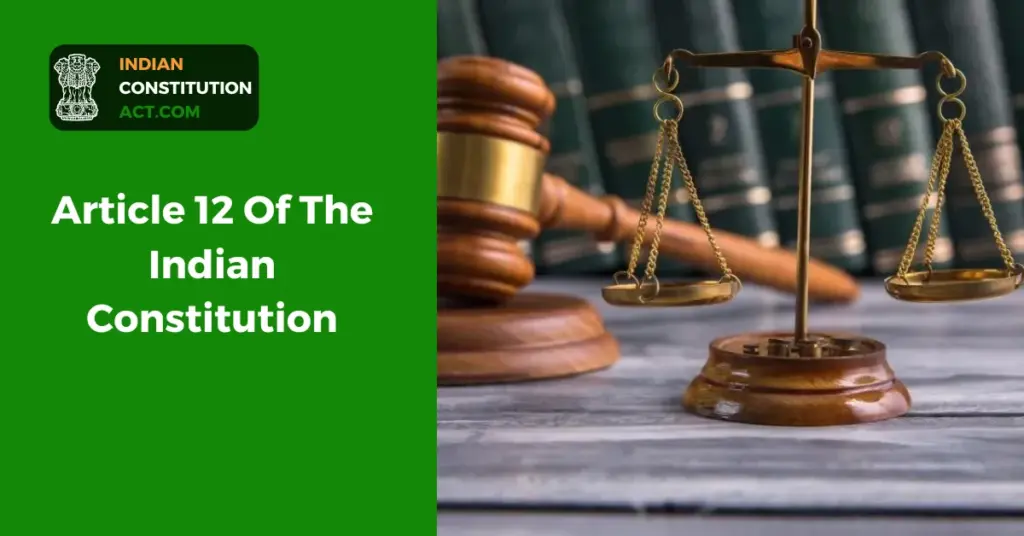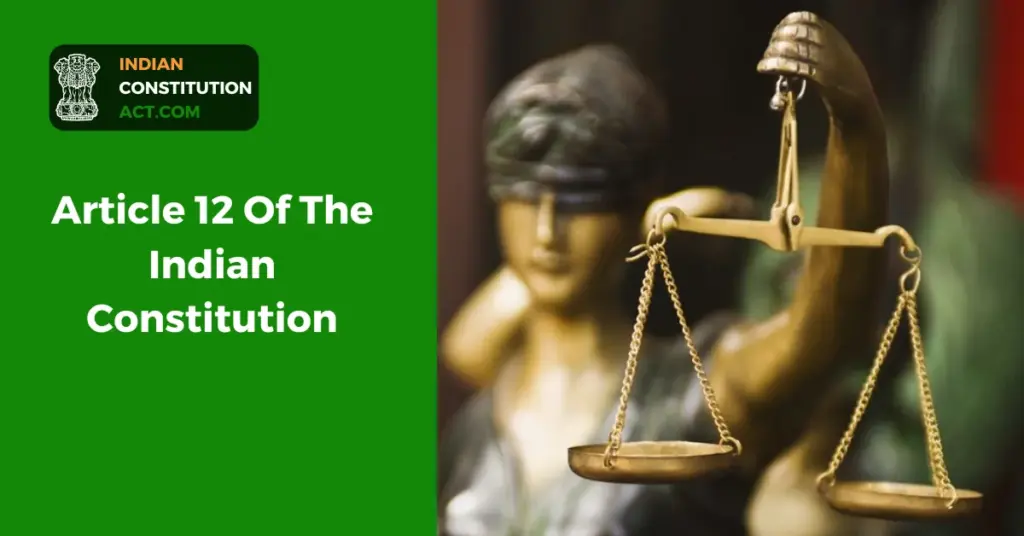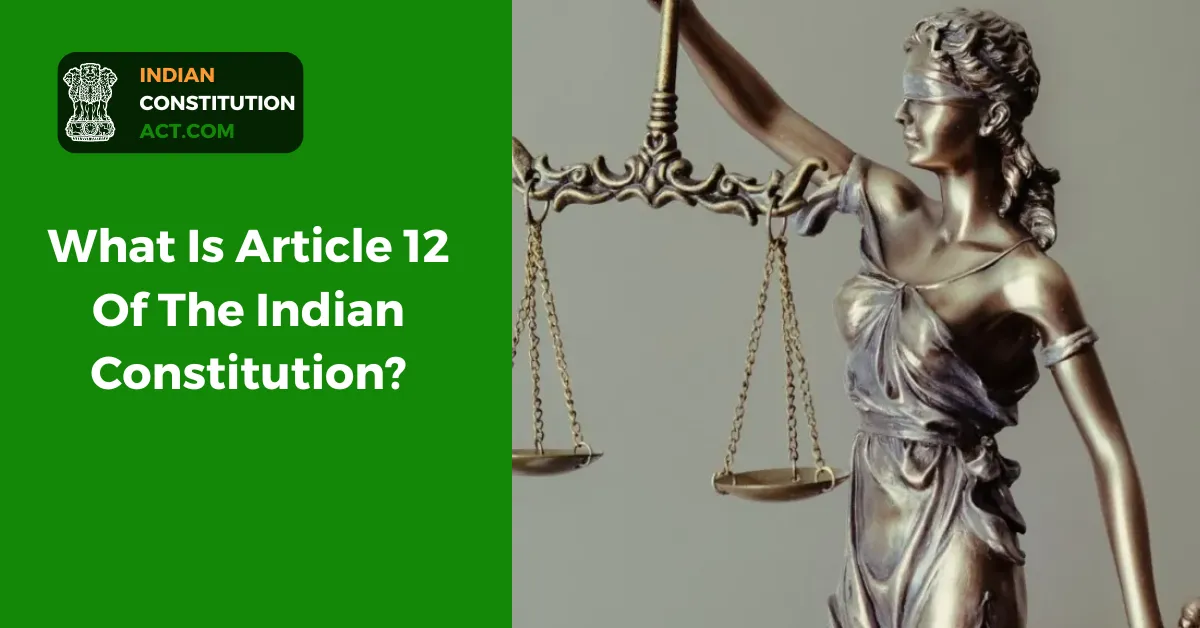Article 12 of the Indian Constitution is the most important article of our Constitution, it is a part of 3rd schedule. This article defines in the applicants of the provisions of Fundamental of Rights for the citizens of India, the term state has been used in a very wide concept, to provide clarity to the entire term. This blog mentions and clarifies all the details of this article of the Constitution of India.
Table of Contents
What Does Article 12 Of The Indian Constitution Says?

The Article 12 of the Indian Constitution Says:
In this Part, unless the context otherwise requires, “the State’’ includes the Government and Parliament of India and the Government and the Legislature of each of the States and all local or other authorities within the territory of India or under the control of the Government of India.
This article gives the definition of the state in India and several organs which come under it. The definition of the State under Article 12 of the Constitution of India is purely applicable only to part 3 which is Fundamental Rights) and part 4 (Directive Principles of State Policy) of the Indian Constitution.
As per the court, the guidelines for deciding any authority as other authority under Article, such as the most famous case of 1979 “Ramana Dayaram Shetty v. The International Airpot”. Like as per this case if the entire shares are owned by the government of India, If almost the entire expenditure is done by the government, and If there is a state-conferred monopoly in that corporation, it also claimed that whenever there is deep and pervasive control by the Goverment, and if the function by the corporation is of public importance and lastly.
Also read: What Is Article 20 Of The Indian Constitution?
Definition of State Article 12
Article 12 defines the term ‘State’ as used in different Articles of Part III of the Constitution. It says that unless the context otherwise requires the term ‘State’ includes the folloing :-
a) The Government and Parliament of India, i.e., Executive and Legislature of the Union.
b) The Government and the Legislature of each State, i.e., Executive and Legislature of States.
c) All local or other authorities within the territory of India.
d) All local and other authorities under the control of the Government of India
Local Authorities:- ‘Local authorities’ as defined in Section 3 (31) of the General Clauses Act refers to authorities like Municipalities, District Boards, Panchayats, Improvement Trusts and Mining Settlement Boards.
Major Points Of Article 12 of The Indian Constitution

- Fundamental rights available against State Under that concept unlike the other legal rights, which are the creation of the State given to individuals against one another, the fundamental rights are claimed against the State. Therefore, whether a constitution says it or not, it is generally assumed that the fundamental rights given in it are available against the State such as against the actions of the State and its officials. Fundamental Rights provided by Articles 15(2),17, 23(1) & 24 are available against private individuals.
- In Article 12 the expression ‘other authorities’ is used after mentioning a few of them, such as, the Government, Parliament of India, the Government and Legislature of each of the States, and all local authorities.
Body Is Characterized As An Authority Under Article 12
- The body becomes subject to the discipline of the Fundamental Rights which means that its actions and decisions can be challenged with reference to the Fundamental Rights.
- The body also becomes subject to the discipline of Administrative Law.
- The body becomes subject to the writ jurisdiction of the Supreme Court under Art. 32 and that of the High Courts under Article 226.
